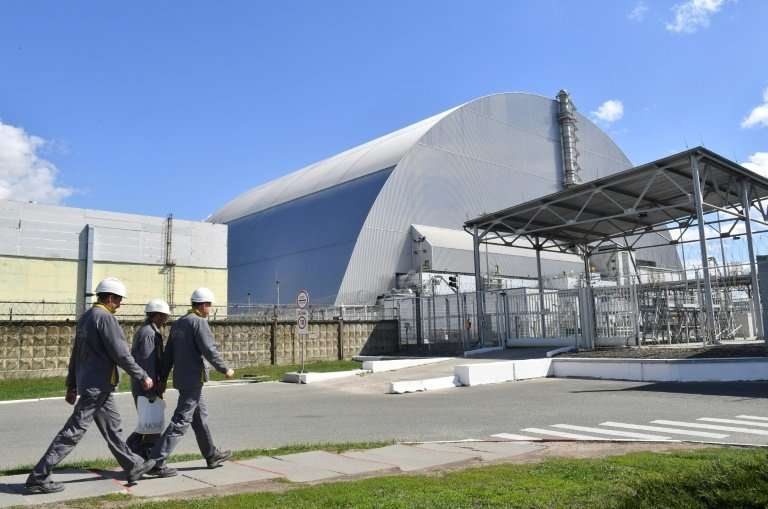A fire broke out around the Chernobyl nuclear power station but radiation levels at the site of the world's worst nuclear disaster were unchanged, officials said
Ukrainian authorities on Tuesday said a bushfire had broken out in the exclusion zone around Chernobyl, scene of the world's worst nuclear accident in 1986, but radiation levels remained within safe limits.
"Radiation levels have not risen either inside the exclusion zone or in adjoining areas," the zone's administration said in a statement.
Prime Minister Volodymyr Groysman wrote on Facebook that "radiation levels are safe. In Kiev and in Chernobyl itself including at the Chernobyl power station site, they are significantly below the acceptable limits. So there's no need to worry."
"I stress once more: the situation is fully under control," he added.
The fire broken out in dry grass on Tuesday morning in the area of high radiation less than 10 kilometres (6 miles) from the power station and later spread over some 10 hectares (25 acres) of woodland, the state emergency service said in statements.
It published photographs of smoke billowing from woodland and flames spreading along the ground.
The state nuclear industry regulator said nothing untoward had taken place inside the former nuclear power station, which is not at risk from the flames.
More than 130 firefighters were battling the fire as well as two planes and a helicopter which dumped water on the fire, the state emergency service said, adding that the wind was not blowing towards the capital Kiev.
Bushfires occur regularly in the woods and grassland around the power station. In 2015 a forest fire burned for four days.
Chernobyl's Number Four reactor, which is about 100 kilometres (62 miles) north of Kiev, exploded in 1986 during testing in the worst such accident ever.
Radioactive fallout from the power station contaminated up to three-quarters of Europe, according to some estimates, with Ukraine, Russia and Belarus, all then part of the USSR, the worst-affected.
A 30 kilometres radius around the power station is still an exclusion zone where people are not allowed to live.
The three other reactors at Chernobyl continued to generate electricity until the power station finally closed in 2000. A giant protective dome was put in place over the fourth reactor in 2016.
© 2018 AFP
























